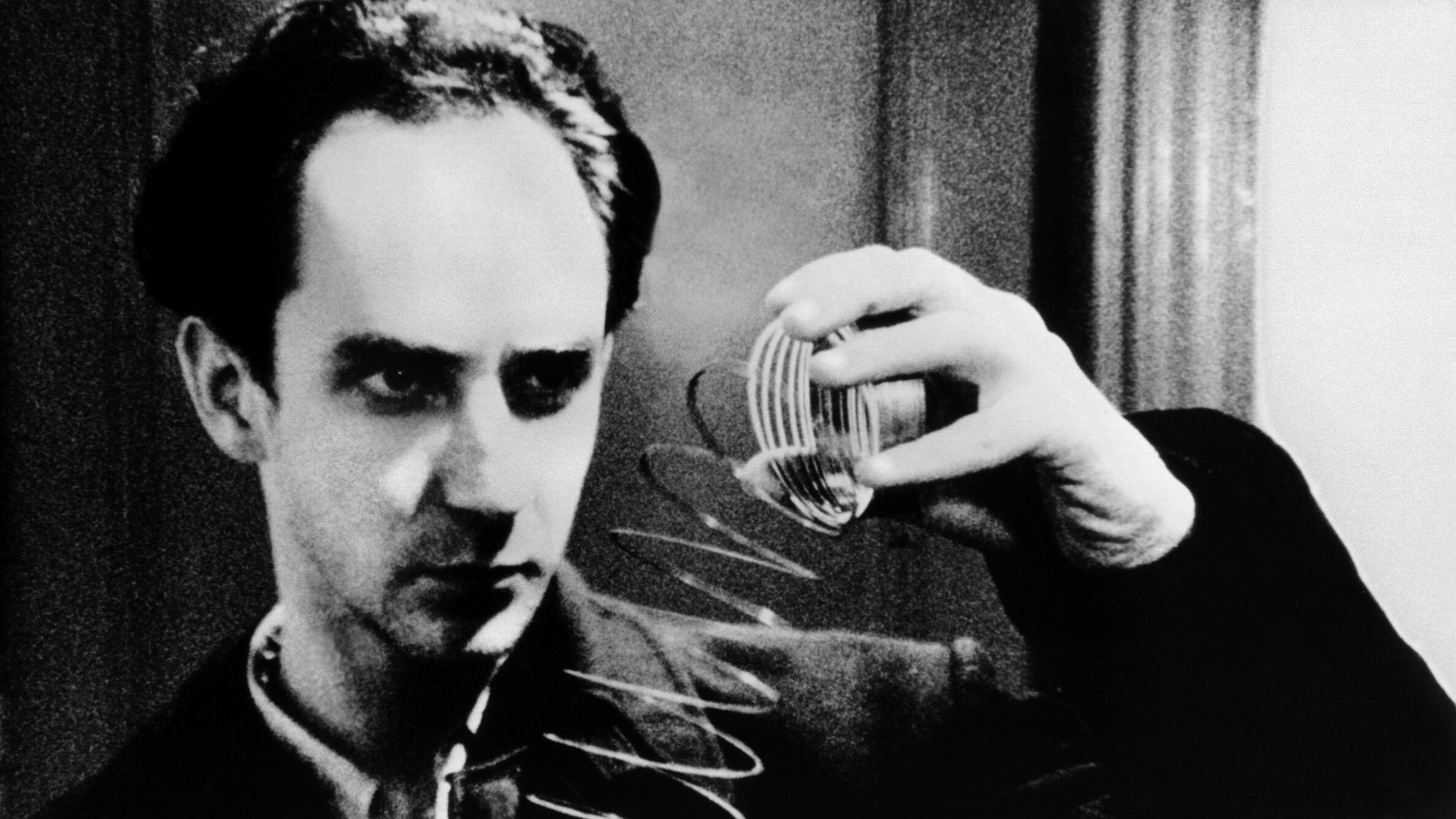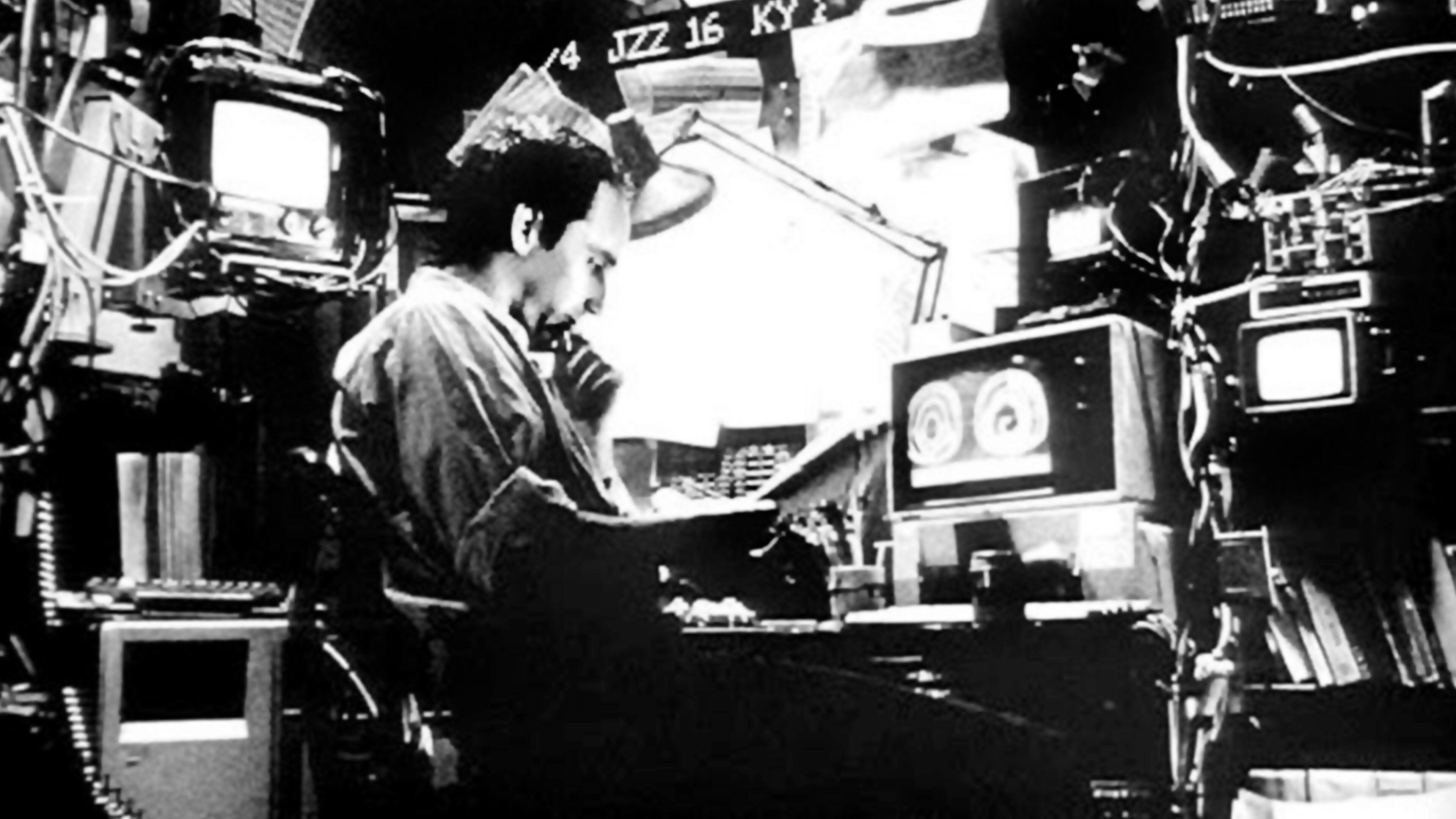Pi retro review: reexamining Darren Aronofksy's debut movie
Darren Aronofsky’s first movie celebrates 25 years in 2023.

It's March 14, which means that it is Pi Day, a celebration of math on the day that coincides with the first three digits of the seemingly never-ending constant (3.14). Many math fans will celebrate by reciting as many digits of Pi as they can memorize or by enjoying a slice of the delicious desert, but movie fans can also get in on the action in 2023, as Darren Aronofsky's first movie, Pi, celebrates its 25th anniversary.
Part of that celebration is with a special screening in movie theaters put on by A24, the specialty studio behind Oscar-winner Everything Everywhere All at Once. Screenings are taking place across the country, with a live Q&A with Aronofsky and others who worked on the movie take place live from Los Angeles following the screening of the restored movie. Find out more here.
Aronofsky has become one of the more singular directors of the last 25 years, from Requiem for a Dream to The Wrestler to Black Swan to his most recent movie, The Whale. But in honor of the silver anniversary of his debut feature and the mathematical holiday, let's dive into a retro review for Pi to see how it holds up 25 years later. But first, some of the basics.
What is Pi about?
Pi is Darren Aronofsky's debut feature, with the Oscar-nominated director writing the screenplay (working on the story with Sean Gullette and Eric Watson) and directing.
Summing up the movie as simply as possible, Pi follows a mathematician who becomes obsessed with searching for patterns in the universe as part of his quest for meaning. Diving in deeper gets more complicated, but the trailer for the 25th anniversary can give you a hint at what's in store:
The legacy of Pi
Pi debuted at the 1998 Sundance Film Festival and then was released to the general public on July 10, 1998. It did not make much of an impact at the box office (Box Office Mojo reports it has earned a lifetime gross of $3.2 million), but the movie was critically acclaimed, currently with a "Certified Fresh" rating of 88% on Rotten Tomatoes. It also snagged a number of high profile awards, including a directing award at Sundance for Aronofsky, a special recognition for "excellence in filmmaking" from the National Board of Review and Best First Screenplay from the Independent Spirit Awards.
There is definitely a passion for the movie among those that have seen it (it has an 85% audience score on Rotten Tomatoes, no small feat for a movie this trippy). However, the legacy of Pi at this time is less the movie itself and more that it launched Aronofsky.
Get the What to Watch Newsletter
The latest updates, reviews and unmissable series to watch and more!
His next movie, Requiem for a Dream, was more widely seen and garnered him a more devoted fanbase. He would then have his biggest commercial and critical successes a few years later with The Wrestler and Black Swan. Those movies are what people often point to as the quintessential Aronofsky movies and best portray his recurring themes, including how his characters deal with obsession and/or addiction. Though all that is present right from the get go with Pi.
Pi's most iconic moment

So much of Pi is a madcap montage of Max (Sean Gullette) analyzing numbers, taking his pills and listing his thoughts in a voice over notary, but it reaches a pinnacle when Max, with his high-powered microchip plugged into his computer, Euclid, runs one more test in search of duplicating a potentially world-altering number.
It is a feverish sequence that kicks the third act into gear as Max's discovery not only impacts him but has meaning for those in the financial and religious worlds. We watch as numbers, patterns and an on-edge Max stumble onto something that he doesn't fully understand, but knows it is important. The way Aronofsky presents the sequence creates a similar feeling in the viewer.
Some of what Pi talks about may seem like gibberish, for lack of a better word, but the feeling is there as we witness how this obsession nearly destroys Max.
Does Pi hold up?
Rewatching Pi, I couldn't help but be reminded about a number of other iconic director's first movies, like Christopher Nolan's Following or George Lucas' THX 1138. While they all have a story they tell that I'm sure is intriguing and meaningful to the filmmakers, it is secondary to the movies being a showcase for their skill.
However, where Aronofsky's Pi stands out among these other examples is that the things that have become his calling card are even more clearly defined. Watch Pi and you'll see how he went from that movie to Requiem for a Dream to The Fountain to Black Swan.
This is what makes it truly incredible. Aronofsky's story and ability to work with actors improved over time, and he has applied some new tricks to fit the story that he is telling, but the core, undeniable traits of his filmmaker DNA were present from the get go.
Pi is not among Aronofsky's best, but it is fair to say that if you truly want to understand him as a director, then it may be his most important piece of work.

Michael Balderston is What to Watch’s assistant managing editor and lead movie writer, covering movies coming to theaters, writing movie reviews and highlighting new and classic movies on streaming services; he also covers a range of TV shows, including those in the Taylor Sheridan universe, Slow Horses, Only Murders in the Building, Jeopardy!, Saturday Night Live and more, as well as the best ways to watch some major US sporting events.
Based outside of Washington, D.C., Michael's previous experience includes writing for Awards Circuit, TV Technology and The Wrap.
Michael’s favorite movie of all time is Casablanca, while his favorite TV show is Seinfeld. Some 2025 favorites include One of Them Days and Black Bag for movies, and The Pitt on TV. Follow on Letterboxd to keep up with what I'm watching.











